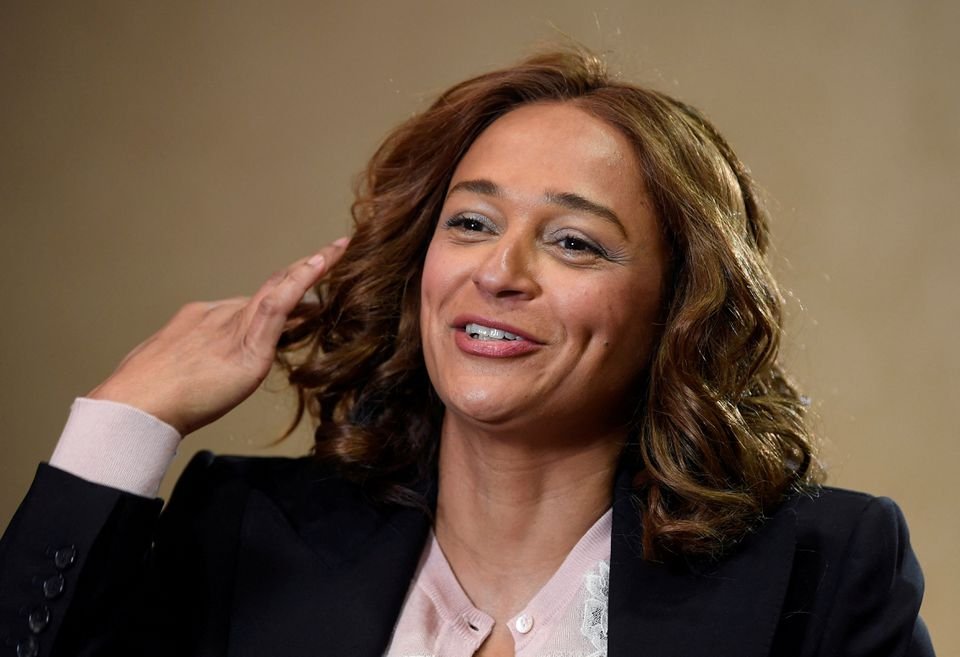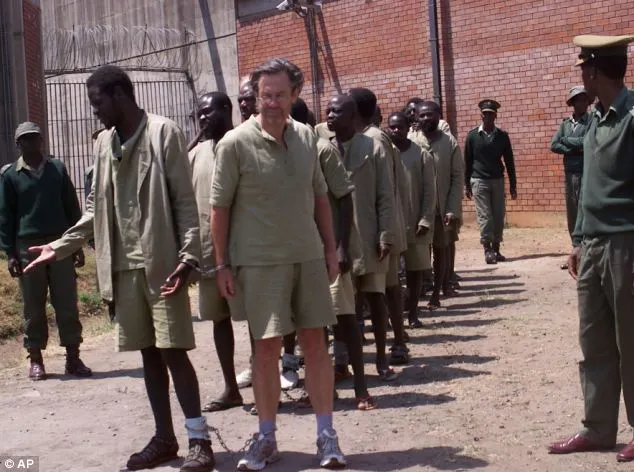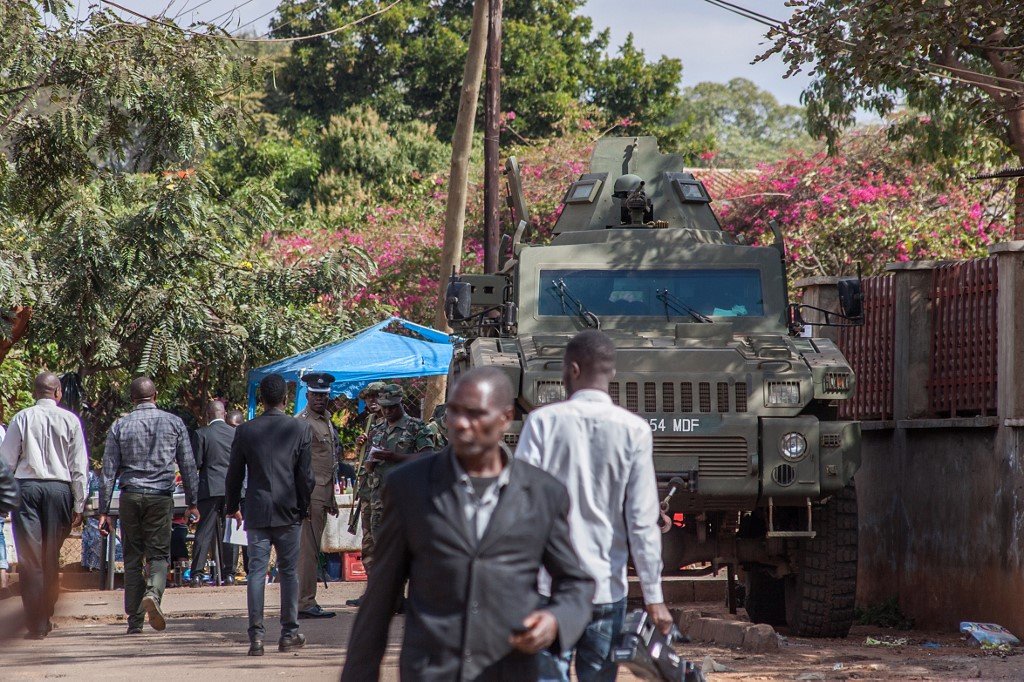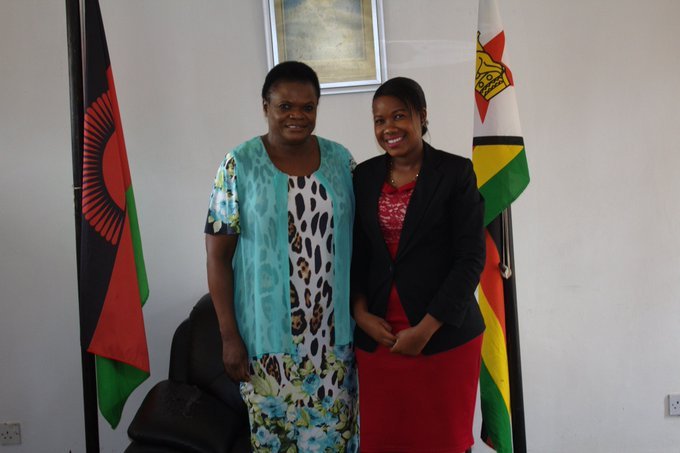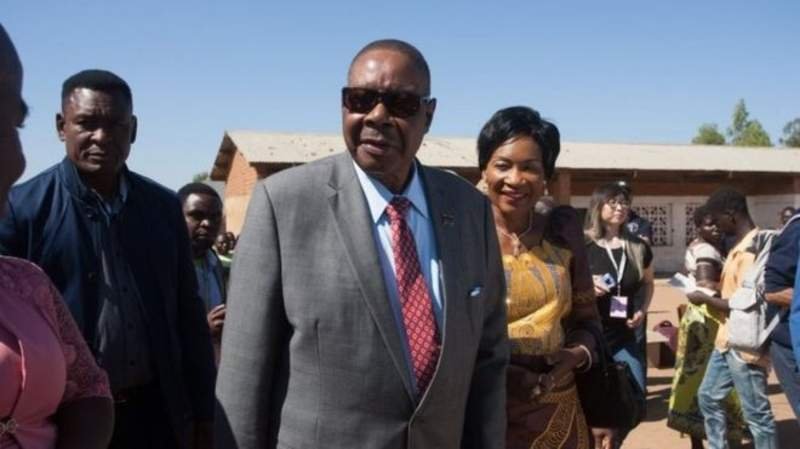Malawi has deployed soldiers on the streets of the capital Lilongwe on Wednesday after the country’s supreme court of appeal approved a 14-day ban on protests against the alleged rigging of the presidential vote.
A three-day demonstration was scheduled to start on Wednesday had been called by a coalition of human rights groups over May’s vote that saw the re-election of Peter Mutharika.
Malawi Defence Force (MDF) soldiers in their armoured vehicles were deployed in the streets and strategically parked from Area 18 Roundabout, where the Lilongwe demonstrations were supposed to start from.
The Human Rights Defender Coalition wanted protests at the southeastern African nation’s airports and borders to demand the resignation of Jane Ansah, the election commission chair, over irregularities.
She was accused of using Tipp-Ex to change the vote tallies. Mr Mutharika won the first-past-the-post election with 38.5 per cent of the vote, compared with just over 35 per cent for Lazarus Chakwera, his closest challenger. Mr Chakwera, who has called the result “daylight robbery,” went to the nation’s constitutional court with another opposition leader, Saulos Chilima, to seek a rerun.
As the court considered its verdict, mass protests and crackdowns by Mr Mutharika’s government have inflamed political polarisation in one of the world’s poorest nations, which relies on tea and tobacco exports.
Last week Mr Mutharika ordered security forces to block the planned protests at the country’s airports and other entry points “with all the necessary force to ensure that the integrity of our borders is not compromised even for a single minute”.
The president added: “These people are waging war on our country and it’s treasonous.” Ms Ansah has defended the use of correctional fluid in the results tallies and denies wrongdoing.
International observers said the May election was peaceful, but there had been indications that Mr Mutharika’s Democratic Progressive Party abused its power by dominating state media. Malawi has enjoyed multi-party democracy since 1994, leading to relative political stability compared with other countries in the region. But the disputed election has led to a months-long political crisis that has brought thousands of young Malawians on to the streets.
The demonstrations have been mostly peaceful but there have been outbreaks of violence, such as the burning of politicians’ homes. Protest organisers have criticised the police response for their heavy-handed response.
This month Timothy Mtambo, the head of the HRDC, survived a petrol-bomb attack on his home in what Amnesty International called “a clear act of intimidation”. The crisis has been compared with Kenya’s contested polls of 2017, which led judges to annul the result for the first time in an election for Africa.

